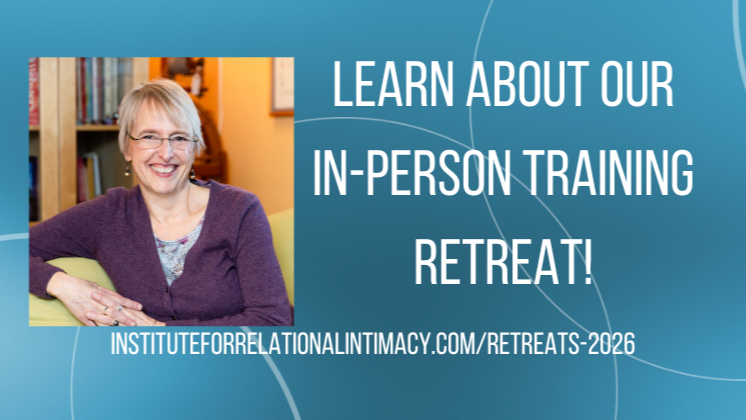Polyamory And Jealousy, Part 1
Sep 01, 2021
“I love being in a polyamorous relationship. It fits my values and my personality, and I love that it’s possible for both of us to explore love and intimacy with other people, and that we’re able to be open with one another about it. But…when my partner’s out on a date, and I’m sitting alone at home, my mind starts spinning. I think all kinds of things that I know probably aren’t really true, but I can’t stop obsessing over them. How do I break out of the jealousy spiral?”
I hear this kind of story all the time in my work with people in consensually non-monogamous relationships. The idea that polyamorous people don’t experience jealousy is a myth. In fact, it’s the most common challenge I see in my practice.
Experiencing jealousy doesn’t mean that you’re doing anything wrong. It also doesn’t mean that your partner is doing anything wrong. Emotions are messy; we can’t control when they arise. Making thoughtful agreements with your partner, communicating well, and generally having a fantastic relationship won’t necessarily protect you from jealousy or other uncomfortable feelings. It’s completely normal.
That doesn’t mean you just have to put up with jealousy, either. It’s completely possible to learn how to handle jealousy skillfully, so that you experience less jealousy, and feel less distress when it arises. You simply need a different set of tools — one that focuses on self-soothing, making choices about what kind of narrative you tell yourself, and working collaboratively with your partner to check in and challenge negative assumptions. That’s what this series of posts is intended to provide.
For the purposes of this post, I’m going to treat you like I would treat the client in the quoted example above. That means I’m going to assume that you’re experiencing jealousy, but not because of broken agreements or infidelity in your relationship, and that your goal is to feel more comfortable and happy, not to renegotiate agreements with your partner.
Be kind to yourself
Let’s return to our scenario. Imagine that your partner is out on a date with someone else. You’re at home thinking about it, and you’re experiencing jealousy or some other uncomfortable emotions.
Start by forgiving yourself for having uncomfortable emotions. Emotions come. That’s okay. You can’t stop them by fighting them. Feeling jealousy does not mean there’s something wrong with you, your relationship, or your partner. It’s just that an emotion is arising, and that’s okay. Take a couple of deep breaths and give yourself some love.
Get in touch with your body
When you’re having a hard time managing emotions, it takes some grit to get your brain out of the rut it’s in and onto a channel that is compatible with feeling better. Thinking more thoughts rarely works. Getting in touch with your body can help break the loop of negative thoughts. Since we all have bodies, anyone can do this any time.
I’m going to walk you through a little exercise I often use when I experience uncomfortable emotions. It is designed to help you engage with your body and give your mind a little break. You might be able to do it as you read, or you might want to read it out loud, record it, and then close your eyes and replay it so you can fully immerse yourself. Either way, I hope you can allow yourself to take your time and get grounded in your physical experience. Ready? Here we go.
Close your eyes and tap into your senses. Listen to sounds in the space you’re in. Take several moments to just tune in. What are you hearing? What are you smelling? Can you feel where your body is supported by whatever you are sitting on? What does that area of your body feel like?
Take a deep breath and exhale as slowly as you can. How does it feel to take in air? How does it feel to exhale? As you breathe, focus on the exhale, which should be as long as you can make it. Just let the inhale take care of itself. Exhale again. And again.
As you settle into your seat, notice your bodily sensations. Can you feel signs of life inside your body? As you look around inside your body for sensations, you might feel an ache or a pain, and that’s fine. Just send your attention and your breath to any part of your body that could use some attention. Breathe out anything your body doesn’t need right now.
As you continue to look around inside your body, you might notice some really quiet areas of your body that don’t experience anything distressing—perhaps the back of your right knee, or your smallest toe on your left foot, or the spot behind your right ear. Notice the quiet parts. Don’t forget to breathe.
See if you can relax and tune in enough to begin to perceive a faint buzz or vibration. This is the sensation of life. Your body is doing a zillion miraculous functions right now, and you might perceive a tiny buzz of aliveness. If you don’t, don’t worry about it. Just appreciate the quiet inside of you. Whatever you are experiencing, this is you, in this moment. This is your body. All of your amazing senses. All of this is a miracle, and it’s all you. You are a miracle, and this body of yours is a miracle.
Let your attention rest quietly in your body and receive. Receive all the sounds you are hearing. Receive the smells in your environment. Feel the sensations your body is experiencing. Notice any taste you can become aware of. Take it slow; there’s no rush here. Give yourself plenty of time to breathe, feel, and experience. Enjoy this moment. Take a little break and just be.
Let your focus go outside of yourself to what’s real in your environment. You might open your eyes and take a look around. Just allow yourself to neutrally experience everything around you. There are colors, objects, textures. Appreciate the quality of the light. This experience is uniquely yours, unique to this moment in this exact location. Let yourself have an experience that’s all yours.
I encourage you to sit in that neutral space of experiencing for a long time. Doing this gives your body and your mind an opportunity to rest and heal. If you’re feeling a little emotionally wobbly, or if you’re not feeling terrific physically, that’s okay. Just have an experience of sensing. Let your body take the lead, and let your mind take a break. Put on some soft music and give yourself a mini-vacation. When you’re ready, you can come back to your day. Or if you would like to, go have a nap and extend your mini-vacation.
Shifting gears away from thinking and into bodily sensation takes some practice, but giving yourself a brain break like this is extremely good for your mental and physical health. You probably can’t think your way into feeling better when you are in the grip of strong emotion, but you can get there through engaging with your physical body. The more you practice, the easier it will be.
In part two of this series, I’ll explore a strategy you can use to start working with the thoughts and emotions you are experiencing.
Photo by Melissa Askew on Unsplash. This article was originally published on Psychology Today.






